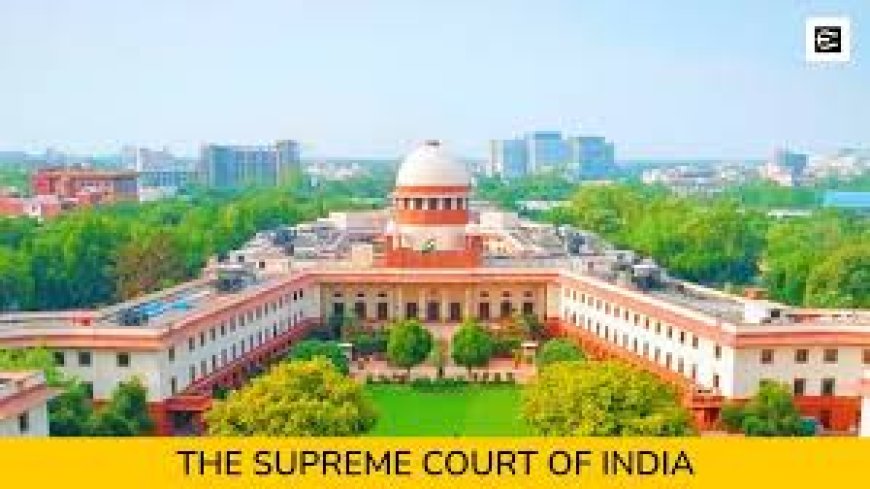SC refers Kerala’s plea challenging borrowing limits to Constitution Bench

New Delhi, Apr 1 The Supreme Court on Monday referred the petition, filed by the State of Kerala against the Union of India, challenging the limits imposed on the State's borrowing capacities, to a five-judge Constitution Bench for further directions.
A bench, comprising Justices Surya Kant and K V Viswanathan, however, refused to pass orders on the interim relief sought by the State for additional borrowing for the financial year 2023-24.
The case pertains to a petition filed by Kerala State in the apex court in December 2023, alleging that the central government has encroached upon its fiscal affairs.
The state asserted that certain directives and amendments issued by the Ministry of Finance were inhibiting its ability to fulfil budgetary commitments, thereby imperilling vital welfare schemes and developmental initiatives outlined in its annual budgets.
Kerala's grievances were concerns over a lowered borrowing limit imposed by the Union, potentially
precipitating a severe financial crisis, with the state urgently requiring around Rs 26,000 crore to meet its financial obligations.
The Union government defended its actions as essential measures aimed at safeguarding macroeconomic stability.
It emphasised the potential ramifications of unchecked state borrowing on the nation's credit rating and overall financial stability.
The Kerala government, in an affidavit, however, opposed the Government's narrative, arguing that the Constitution grants States autonomous authority over their public debts.
The state's response further challenged the Union's interpretation of Article 293, contending that the consent mechanism outlined in the provision primarily serves to protect the Union's position as a creditor, rather than conferring overarching powers to regulate state borrowing.
Kerala countered the Union's assertions of fiscal mismanagement citing its robust investments in social sectors like health and education, which have contributed to the state's commendable human development indices.
It was observed that the State received substantial relief for the financial year from the Union following Court intervention.
Applying the triple test, the Bench opined that the prima facie case and balance of convenience were in favour of the Union government.
Leading the court to refer the matter to a Constitution Bench was an observation that since the present
dispute involved issues regarding the interpretation of Article 131 and Article 293 of the Constitution, and also whether Article 293 vests an enforceable right on States to borrow from government and other sources (if yes, to what extent it can be regulated by the Union?).
The other question which needs to be resolved is whether the borrowing by state-owned enterprises and liabilities arising from public accounts should be included under the purview of Article 293(3) of the Constitution and whether the scope of judicial review regarding fiscal policy was stated to be other issues arising in the matter.
Considering that Article 293 of the Constitution has not been subjected to any authoritative pronouncement by the top Court so far, the bench thought it fit to refer the matter to a 5-judge bench.
The court had been trying to find a solution to Kerala's urgent financial needs before the end of the financial year ending on March 31, 2024.
The Centre initially agreed to allow an additional borrowing of Rs 13,608 crore but on the condition that the State of Kerala withdrew its suit.
The Bench objected to the Centre’s condition, saying that the Union government could not insist on the withdrawal of the pending litigation as a condition for a bailout because of Article 131 of the Constitution.
Responding to the Union government's proposal, the State of Kerala pointed out that the amount of Rs 13,608 crore could only cover a fraction of Kerala's immediate financial requirements.
As such, despite the court's recommendation to resolve the dispute through negotiations, the state and Union governments remained at an impasse
The court eventually decided to refer Kerala’s petition to challenge the limits imposed on the State's borrowing capacities to a five-judge Constitution Bench.
What's Your Reaction?











































